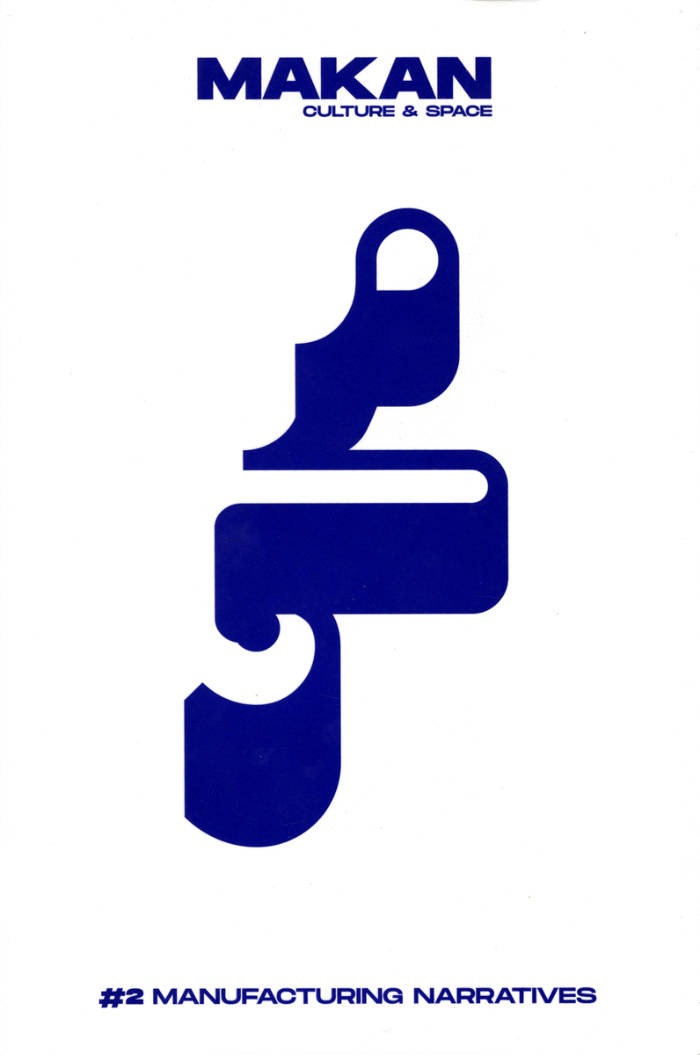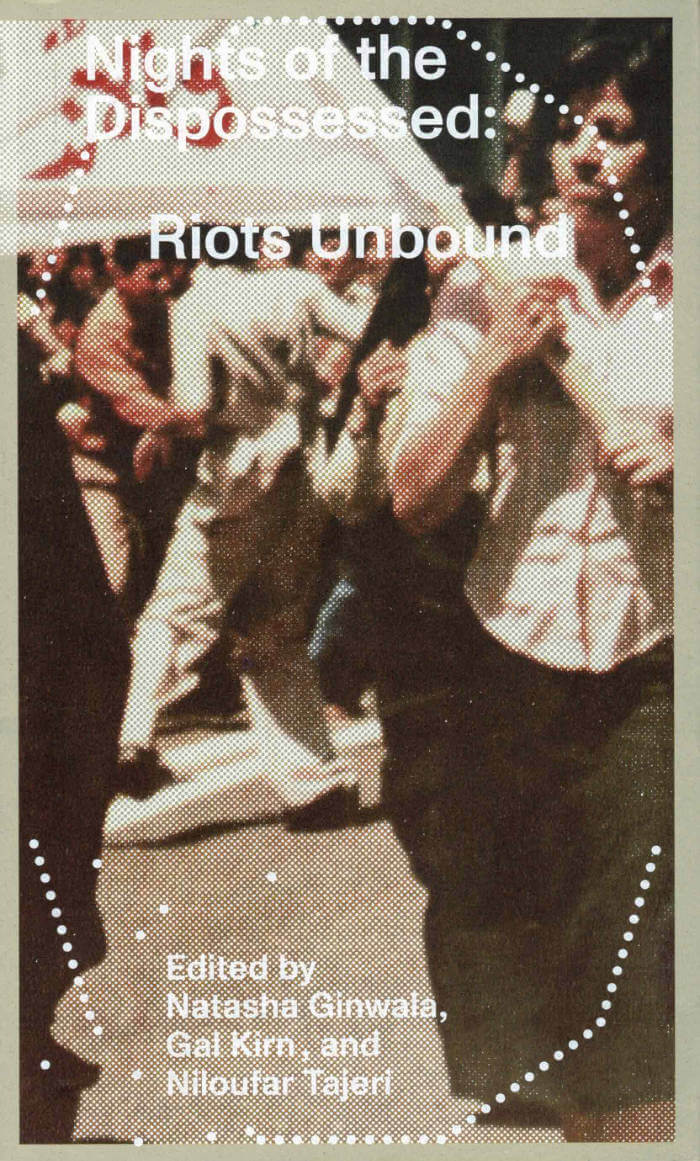Ala Younis
Ala Younis

How to maneuver: Shapeshifting texts and other publishing tactics
The research and series of exhibitions that this publication grew out of, is part of an ongoing project exploring the significant work of individuals, collectives and institutions in the field of alternative art and publishing practices, past and present.
Contributors: Ahmad Makia, Ali Eyal, Ali Hussein Al-Adawy, Ali Yass, Andrew Murphie, Bady Dalloul, Barakunan, Bernhard Cella, Elaine W. HO., Faisal Al Hassan, Farah Khelil & antoine lefebvre editions, Fehras Publishing Practices, Giulia Crispiani & Federico Antonini, Hala Bizri & Jana Traboulsi, Haytham el-Wardany, Huda Smitshuijzen AbiFarès, Hussein Nassereddine, Jabbour Douaihy, Jaffat El Aqlam, Khalid Albudoor & Nujoom Alghanem with Rand Abdul Jabbar & Uns Kattan & Hammad Nasar, Moad Musbahi, Noopur Desai, Raafat Majzoub, Yazan Ashqar.
And more

MAKAN #2 / Manufacturing Narratives
In its second issue, Manufacturing Narratives, Makan focuses on how interrogating narrativity can provoke fundamental questions about how societies define or choose to accept societal or historical truths in today’s world. Spanning across [and beyond] the Mashreq and Maghreb, the various contributions reflect a shared space of inquiry that bridges geographies and fosters emergent dialogues across shifting territorialities. This issue invited contributors to right (as much as write) narratives: to question authorship and its social collectivities, to retell alternative public histories, to explore gender roles, and to unsettle the exoticism, folklorization, and political textures of fiction as a practice of indiscipline. Together, these contributions re-articulate the genealogies of our present through the pluralities of the past, offering tools to imagine and manufacture alternative futures, and realities otherwise.
With contributions by Ala Younis, Bari Abbassi, George Bajalia, Karim Kattan, Karima Kadaoui, Tamkeen, Kenza Sefrioui, Lahbib El Moumi, Laila Hida, Maureen Mougin, Mohamed Amer Meziane, Monica Basbous, Nadia Tazi, Sénamé Koffi Agbodjinou, Salma Barmani, Sonia Terrab, Soufiane Hennani, Yto Barrada.

Nights of the Dispossessed
Natasha Ginwala, Gal Kirn and 1 more
Riots are extraordinary events that have been recurring with increasing frequency and occupy a highly controversial space in the political imagination. Despite their often negative portrayals, it is undeniable that riots have played a pivotal role in the confrontation between authority and dissent. Recently, with the deepening crises of capitalism, racial violence, and communal tension, an “age of riots” has powerfully begun. As master fictions of the sovereign nation-state implode, and the hegemonic silencing of the dispossessed reveals the cracks in governability, Nights of the Dispossessed: Riots Unbound brings together artistic works, political texts, critical urban analyses, and research projects from across the world in an endeavor to “sense,” chronicle, and think through recent riots and uprisings—evoking a phenomenology of the multitude and surplus population.
With contributions from Asef Bayat, Joshua Clover, Vaginal Davis, Keller Easterling, Zena Edwards, Nadine El-Enany, Dilip Parameshwar Gaonkar, Gauri Gill, Natasha Ginwala, Natascha Sadr Haghighian, Louis Henderson, Satch Hoyt, Hamid Khan, Gal Kirn, Josh Kun, Léopold Lambert, Margit Mayer, Vivek Narayanan, Ai Ogawa, Oana Pârvan, Elizabeth A. Povinelli, SAHMAT, Thomas Seibert, Niloufar Tajeri, Chandraguptha Thenuwara, Dariouche Tehrani, and Ala Younis.

How to Mend: Motherhood and Its Ghosts
In How to Mend: On Motherhood and its Ghosts, Kayfa ta’s 4th monograph, Iman Mersal navigates a long and winding road, from the only surviving picture of the author has with her mother, to a deep search through what memory, photography, dreams and writing, a search of what is lost between the mainstream and more personal representations of motherhood and its struggles. How to mend the gap between the representation and the real, the photograph and its subject, the self and the other, the mother and her child.
Iman Mersal is an Egyptian poet and associate professor of Arabic Literature and Middle Eastern Studies in the University of Alberta, Canada.
Text: Iman Mersal
Editors: Maha Maamoun and Ala Younis
Translated from Arabic by Robin Moger
Co-publishers: Kayfa ta and Sternberg Press
Design: Julie Peeters
Size: 9.6 x 14.8 cm
Pages: 168 pages, Soft cover

How to spell the fight
James R. Murphy, a math teacher in La Guardia, New York, regarded mathematics as the most powerful and manipulable abstract language available to humans. To acquaint students who don’t “like” math with abstract and systematical thinking, he put a piece of string in their hands and taught them to make string figures.
How to spell the fight follows a thread that has been running through our fingers from centuries past till the present day, morphing from the tangible string figures that join our hands in childhood to the more elusive computational algorithms that engage our fingers today. Following this line of inquiry through various twists and turns, a conversation about collective agency emerges with the aim of rethinking current paradigms of cognition, education, and power.
Natascha Sadr Haghighian is an artist living in Berlin. Her research-based practice encompasses a variety of forms and formats, among them video, performance, installations, text, and sound. She tries to learn how to make string figures.
Text: Natascha Sadr Haghighian
Commissioning editors: Maha Maamoun and Ala Younis
Copyeditor: Ryan Inouye
Co-publishers: Kayfa ta, Sternberg Press, and Tanmia Bookstores
Design template: Julie Peeters
Size: 9.6 x 14.8 cm
Pages: 80 pages, Soft cover
Printed in Cairo.

SSS – How to imitate the sound of the shore using two hands and a carpet
This publication takes up the issue of mimicking nature and demonstrates how to produce the sound of the sea using two hands and a synthetic carpet.
Artist book by Cevdet Erek
Translated by Ala Younis
Copyedited by Hanan Kassab and Maha Maamoun
Commissioning editors: Maha Maamoun and Ala Younis
Design: Julie Peeters
This publication is an adaptation of Cevdet Erek’s artist book SSS – Shore Scene Soundtrack, Theme and Variations for Carpet, originally published in Istanbul in 2007, by BAS (İstanbul Sanat Aras ̧tırmaları Dernegi), in the context of BENT, Artists’ Books from Turkey, edited by Banu Cennetoğlu and Philippine Hoegen, with design adviser Bülent Erkmen and prepress production assistant Oğuz Yaşargil.
These editions are produced in the context of and with support from Durub Al Tawaya (2014 and 2017); a program curated by Tarek Abou El Fetouh within Abu Dhabi Art.

How to disappear
This publication proposes a set of aural exercises that show readers how to disappear, reappear, join a group, or leave a group. Its annex is a lexicon of some of the sounds that dwell in or are banished from the middle-class household.
Text: Haytham El-Wardany
Editors: Maha Maamoun and Ala Younis
Translated from Arabic by Jennifer Peterson (Preliminary Exercises) and Robin Moger (Sounds of the Middle Classes)